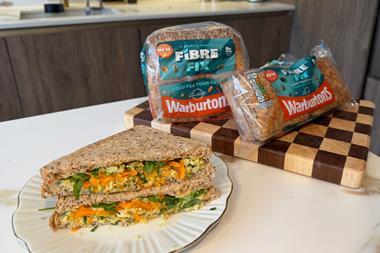
Local communities were at the heart of the pandemic – not only physically, due to limitations in mobility, but also as a result of getting to know, care for and reflect on how we could support those around us. Sentiment trackers throughout the last 18 months have shown consumers’ willingness to support local businesses very often at the top of the list of changes people are keen to make.
Fast forward to the next phase of our recovery, and this behaviour looks like it is going to sustain. It now even has a name – ‘localism’ – where consumers are seeking out and showing preference to brands and products that are connected to nearby communities.
In 2021 we’ve seen significant evidence this trend has not declined, and we’re witnessing a renewed commitment to local communities. As a huge proportion of workers continue to work from home, they’re spending more time in their local areas – and with most large businesses looking like they will offer some kind of hybrid working solution moving forward, there’s no reason to believe this will tail off.
Grocery shoppers’ main reason for turning to their smartphones is often functional, and during the pandemic that need was seeking a suitable, or simply available, delivery option. However, pre-pandemic, shoppers were using search to seek local options – and we seem to have returned to that point.
‘Supermarket near me’ searches are at their highest-ever levels, and across the big four supermarkets you can see in particular ‘Tesco near me’,‘Sainsbury’s near me’ and ‘Morrisons near me’ are at levels we’ve not seen before. This trend is also reflected across almost all grocers, which is a clear indicator of a couple of things: that consumers are using their smartphones more and more to assist their grocery shopping experience, and that they are open to trying different options locally.
Localism isn’t just defined by proximity, however. Buying locally also correlates with buying ethically, as Susie Walker highlights in her Think with Google article: “The shift toward localism was also driven by a rise in conscious consumerism, as people sought to make ethical purchasing choices, desiring authentic, locally and sustainably made products that supported local businesses.”
One way we’ve tried to look into this is to analyse how consumers’ search behaviour around the top 10 supermarkets in the UK has evolved post-pandemic. Consumers searching for supermarkets are increasingly attaching attributes to their search terms around ethics, sustainability, social responsibility and provenance, indicating that localism is not only about supporting local businesses, but also decision-making in larger businesses too.
The complex combinations of attributes that make up localism present very different challenges for businesses of all shapes and sizes. Some will of course benefit from consumers’ desires to shop locally and support independent businesses, but with that increased trade comes responsibility to think about the more traditional attributes of choice and value, which can often be challenging. Similarly for larger businesses, finding the correct balance of what to communicate to consumers about their progress in different areas will be a challenge – and of course an opportunity – as the trend continues to grow.



















No comments yet